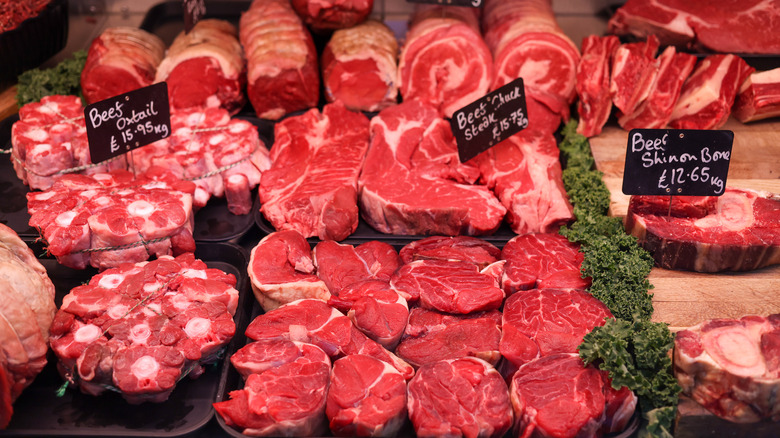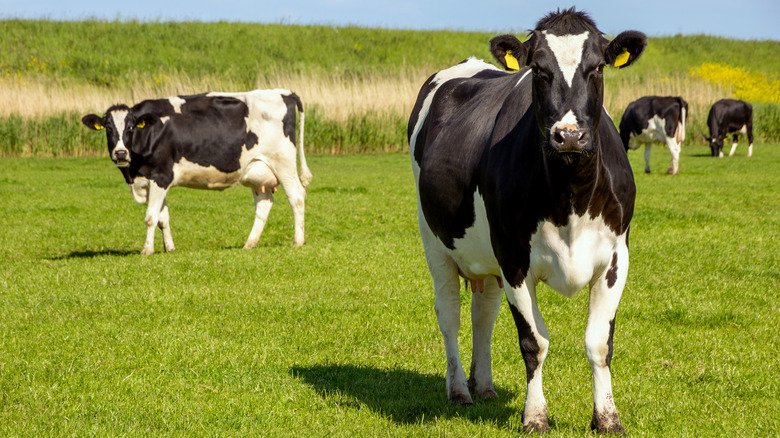What 'Low Carbon Beef' Actually Means
Anyone who has paid even the slightest bit of attention to climate change news likely knows that raising animals to produce meat for consumption is a big contributor to carbon emissions. And that isn't an exaggeration. According to Carbon Brief, 6% of the total global greenhouse gas emissions come directly from the beef industry each year. But that was reported in 2018, and in 2021, CBS News reported the percentage had risen to a hefty 15%.
All of those greenhouse gases come from a number of tasks involved with raising and caring for so many animals to meet the demands of people. Even things like getting rid of the cows' waste contributes to carbon emissions. Since the cows themselves and the farming of them are largely responsible for the greenhouse gas they emit, many people have adopted at least a partially plant-based diet. By trying to cut down on the amount of meat they actually consume, people hope it helps minimize their own carbon footprint. But fortunately, there's a new option in the works for those who want a clean conscience.
This is what low carbon beef entails
According to CBS News, one company, Low Carbon Beef (LCB), aims to minimize the environmental impact of raising and slaughtering cows. Colin Beal, the man behind the Oklahoma-based operation, explained to the outlet that their beef is made by creating 10% less greenhouse gas emissions. Though it might sound like a small amount when thought of on a small scale, 10% less emissions than the industry average is quite a significant step forward.
So if you buy "low-carbon beef," it means that the cows were raised in a way that eliminates as much excess greenhouse gases as possible. It's a responsible choice even though it will cost you a bit more, much like organic produce and other products. Pick up some to try the next time you're ready for a guilt-free burger or meatloaf. Hopefully, with time, the amount of greenhouse gas emissions LCB eliminates will be even greater.

